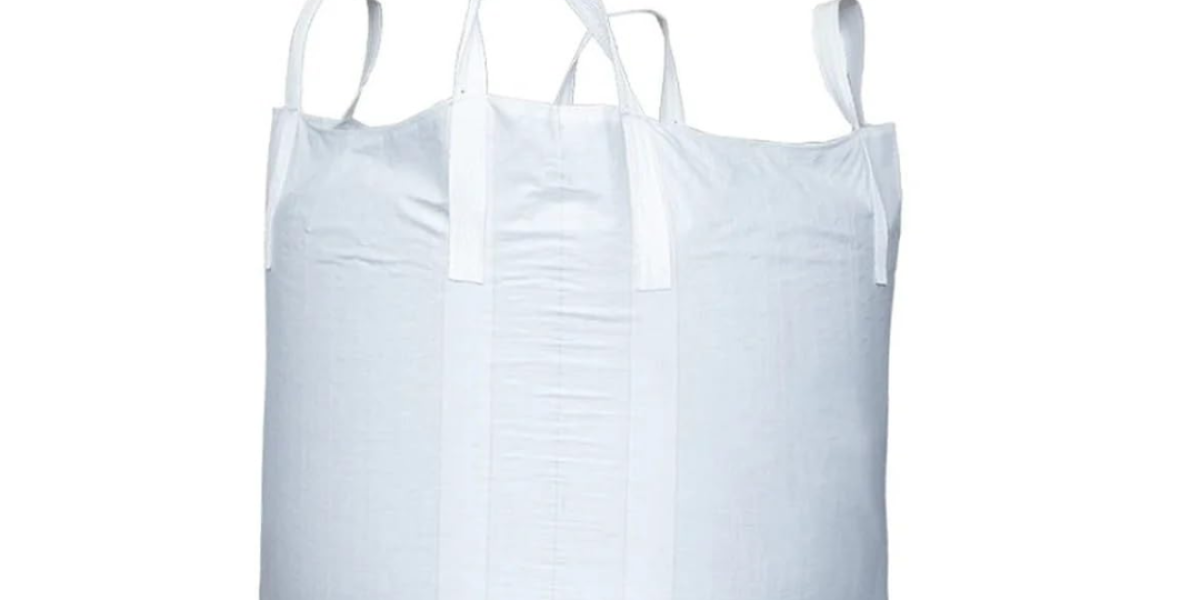PP jumbo bags, often referred to as bulk bags or FIBC (Flexible Intermediate Bulk Containers), have become integral to the logistics and packaging industries. They are widely used for transporting a variety of products, from agricultural goods to industrial materials. Their robust design and versatility make them a favorite among manufacturers and suppliers. This Pulkit Plastic Products delves into the features, manufacturing processes, applications, and market dynamics surrounding PP jumbo bags, providing insights into how they are reshaping packaging solutions across various sectors.
What Are PP Jumbo Bags?
PP jumbo bags are large, flexible bags made from woven polypropylene (PP) fabric. Typically available in capacities ranging from 500 kg to 2000 kg, these bags are designed to hold bulk materials securely and efficiently. The unique construction of the bags allows them to be filled with granular, powdery, or pelletized products, making them ideal for a wide array of applications.
One of the defining characteristics of jumbo bags is their strength and durability. The woven structure of polypropylene provides excellent resistance against punctures, tears, and impacts, ensuring that the contents remain safe during transportation and storage. Furthermore, they can be reused multiple times, making them a sustainable option in terms of environmental impact.
Applications of PP Jumbo Bags
The Jumbo plastic bag have found extensive application across numerous industries, owing to their adaptability and robust design.
- Agriculture: In the agricultural sector, these bags are used for storing and transporting grains, seeds, fertilizers, and animal feed. Their breathable nature allows for ventilation, preventing moisture buildup that could spoil products. Farmers benefit from using jumbo bags as they can easily handle large quantities of bulk materials for sale or transport.
- Construction: The construction industry utilizes jumbo bags for carrying sand, gravel, and other bulk materials. Their load-bearing capacity and resistance to weather elements ensure that materials remain intact during transit. Additionally, they can be used for collecting and transporting debris, providing an efficient waste management solution on construction sites.
- Chemicals and Petrochemicals: PP jumbo bags are commonly used for packaging chemicals, resins, and petrochemical products. These bags can be manufactured with specific liner materials that enhance their resistance to chemical substances, thereby ensuring safe storage and handling of hazardous materials.
- Food Industry: Health and safety standards are crucial in the food industry, and PP jumbo bags can be produced to meet these standards. They are used for bulk storage and transportation of food grains, powders, and other granulated food products. Their reusable nature is also favorable for sustainable practices within the food supply chain.
- Recycling and Waste Management: The recycling industry utilizes jumbo bags for collecting and transporting recyclable materials. Their large capacity makes them an efficient choice for managing waste, thus contributing to more organized and eco-friendly processing of recyclables.
The Manufacturing Process of PP Jumbo Bags
The manufacturing of PP jumbo bags involves several key processes to ensure high quality and durability. Understanding the production pipeline helps in appreciating the features and capabilities of these bags.
- Material Selection: The process begins with the procurement of high-grade polypropylene granules. Quality plays a crucial role in the final output, as inferior materials could lead to compromised strength and stability of the bags.
- Weaving: The polypropylene granules are melted and spun into thin strands, which are then woven together to create strong fabric. The weaving pattern can vary depending on the intended use of the bag, ranging from simple designs for agricultural use to more complex patterns for industrial applications.
- Cutting and Sewing: The woven fabric is then cut into precalculated dimensions based on the desired bag size. Sewing the pieces together involves using heavy-duty stitching techniques, ensuring a secure seal that can withstand heavy loads.
- Lining and Coating: Depending on the intended application, some jumbo bags are lined with additional materials that enhance their protective qualities. For example, bags intended for transport of moist or hazardous substances may have a polyethylene liner for added moisture resistance.
- Quality Inspection: Throughout the manufacturing process, quality checks are implemented to test the strength, durability, and functionality of the bags. These inspections minimize defects and ensure compliance with industry standards.
- Packaging and Distribution: Once the bags have passed quality control, they are folded and packaged for distribution. Manufacturers often employ efficient logistics to deliver their products to various markets, including local and international clients.
Market Dynamics and Pricing Trends
The market for PP jumbo bags has seen significant growth in recent years, driven by increasing demand from various sectors. The versatility of these bags has contributed to their rising popularity, resulting in a flourishing market for jumbo bag manufacturers.
Pricing
When discussing the market dynamics, the Jumbo bag price can vary based on several factors, including material quality, manufacturing techniques, size, and order volume. While bulk orders generally lead to lower prices per unit, custom designs or additional features can influence costs. For instance, a standard jumbo plastic bag may cost between $5 to $20, depending on size and specifications. Market fluctuations, such as changes in polypropylene prices or supply chain constraints, also directly impact pricing trends.
It is essential for businesses to evaluate their needs carefully and contract with reputable jumbo bag suppliers who can provide quality products at competitive prices. Additionally, considering factors such as bag longevity and reuse potential can inform purchasing decisions and justify the initial costs.
The Role of Jumbo Bag Manufacturers and Suppliers
Jumbo bag manufacturers play a critical role in ensuring a steady supply of quality products to meet the demands of various industries. These manufacturers often operate on a large scale, employing efficient production techniques that allow them to cater to high-volume orders.
Many jumbo bag manufacturers also focus on sustainability by implementing eco-friendly practices and sourcing recyclable materials. With increasing pressure on industries to adopt responsible practices, suppliers who prioritize sustainability are gaining a competitive edge in the market.
Moreover, integration of technological advancements into production processes is becoming more prevalent, with some manufacturers utilizing automation to increase output efficiency. These innovations improve not only production flexibility but also ensure consistent product quality, reinforcing the manufacturers’ reputation in the industry.
Environmental Impact and Sustainability
In the context of growing environmental awareness, the use of PP jumbo bags aligns well with sustainable practices. Their reusable and recyclable nature helps minimize waste in the packaging and transportation sectors. As industries move towards eco-friendliness, the demand for durable and environmentally viable packaging solutions continues to rise.
PP jumbo bags can be designed to reduce the ecological footprint of packaging supply chains. Many manufacturers now offer options for bags made from recycled materials and biodegradable additives, contributing to the circular economy. These initiatives not only appeal to environmentally-conscious consumers but also ensure compliance with evolving regulations surrounding packaging waste.
Additionally, the ability to reuse jumbo bags multiple times reduces the overall resources consumed in manufacturing new bags. Companies can employ strategies to track bag usage, fostering responsibility in their supply chains.
Conclusion
The Jumbo bag manufacturer have established themselves as versatile, robust, and sustainable solutions for a wide range of industries. Their unique features, including high durability, capacity, and resistance to moisture and chemicals, make them indispensable in sectors such as agriculture, construction, and food processing. As businesses increasingly value sustainability and environmental consciousness, the demand for these bags is expected to rise, paving the way for advancements in manufacturing processes and innovative designs. With reputable jumbo bag manufacturers adapting to market needs and focusing on quality, the future of PP jumbo bags looks promising.
Frequently Asked Questions (FAQs)
- What is the typical price range for PP jumbo bags?
The jumbo bag price typically ranges from $5 to $20 per unit, depending on factors such as size, material quality, and any additional features. Bulk orders generally lower the price per unit. - What materials are used in the manufacturing of PP jumbo bags?
PP jumbo bags are primarily made from woven polypropylene fabric. Some bags are lined with additional materials for moisture resistance, particularly when handling food or chemical products. - Can PP jumbo bags be reused, and what is their sustainability impact?
Yes, PP jumbo bags are designed for multiple uses, which reduces waste and resource consumption. Reusable bags contribute to sustainability by minimizing the need for new materials and enhancing responsible packaging practices. - How can I select a reliable jumbo bag manufacturer or supplier?
When selecting a jumbo bag manufacturer, consider factors such as product quality, reputation in the market, sustainability practices, and customer reviews. Additionally, assessing their compliance with industry standards and certifications can help ensure you make an informed decision.












